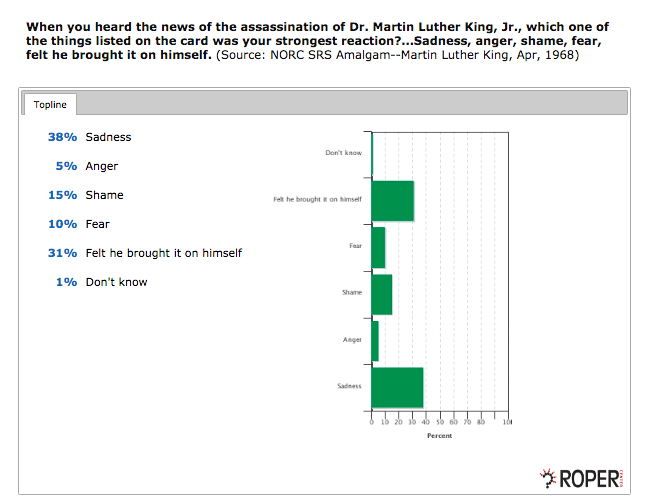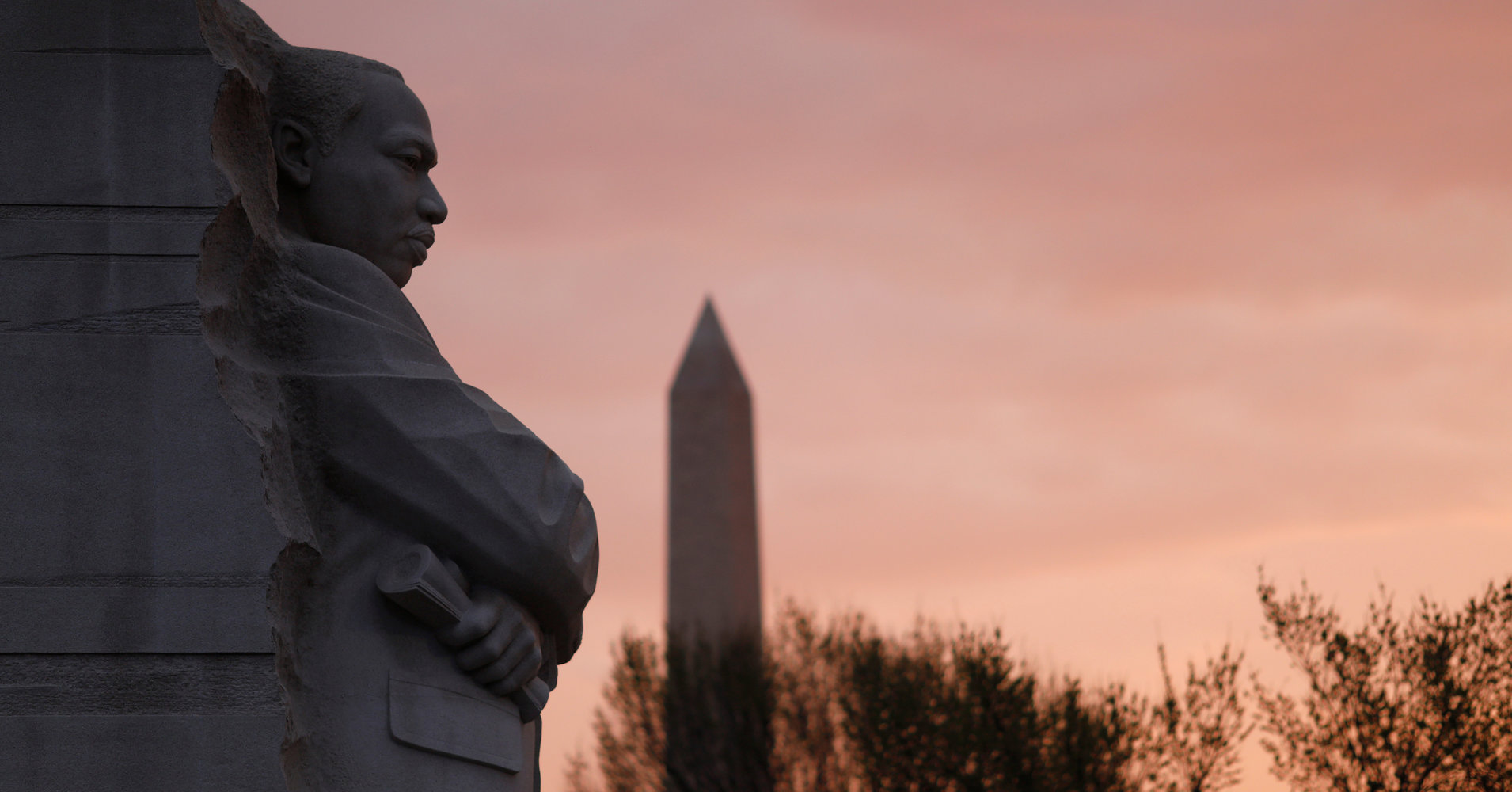[ad_1]
Fifty years after Martin Luther King Jr.’s assassination, his status as a civil rights icon isn’t really in question. In recent polls, 85 percent of Americans say he made things better for black Americans, and nearly 70 percent say that his legacy remains relevant today.
But during his life, King faced the suspicion and outright animosity that a swath of America has often bestowed on protest leaders, especially those advocating against racial injustice.
Back in the 1960s, when King was actually leading protests, just 36 percent of white Americans thought he was helping “the Negro cause of civil rights,” according to historical polling data compiled by the Roper Center for Public Opinion Research. In a 1966 Gallup poll, more than 60 percent of the public rated King more negatively than positively.
After King was assassinated, two-thirds of Americans said their strongest reaction to his death had been sadness, anger, shame or fear, another survey found. Another 31 percent, however, said they “felt he brought it on himself.”

King’s convicted killer, James Earl Ray, received a flood of supportive letters while he awaited trial, the Los Angeles Times noted.
“King stirred up violence and caused many to lose their lives,” one Californian wrote Ray. “The FBI classified him as a trouble-maker. If you killed King, you did a good job, for he had it coming to him.”
Today, fewer than a tenth of black Americans, and 30 percent of the nation as a whole, say that most or all of the goals of the civil rights movement have been met.
See more of Roper’s collection of polling from 1986 here.
[ad_2]
Source link

